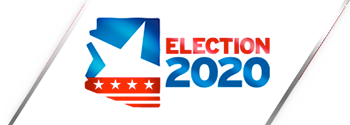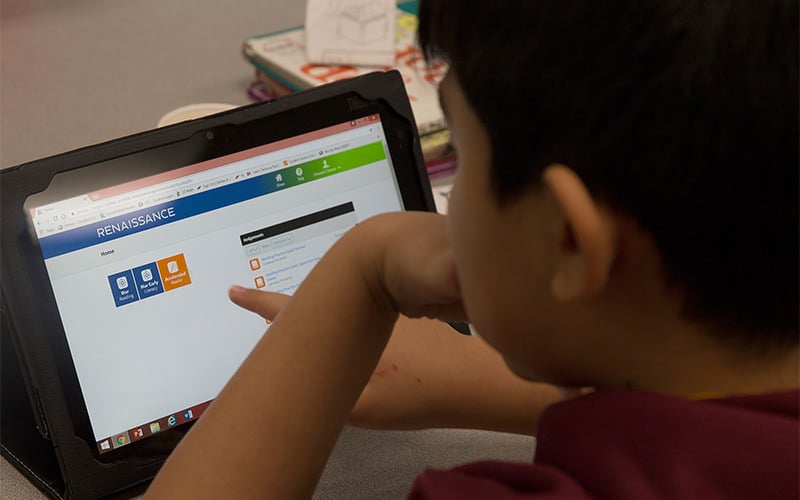PHOENIX – Amid a pandemic that has prompted some teachers to leave their profession, Arizonans are considering a proposal to raise taxes for high earners to help schools pay for salary increases and hire more staff.
Proposition 208 would add a 3.5% surcharge to taxable income above $250,000 for individuals or $500,000 for couples, increasing the overall tax rate on any income over those thresholds to 8%. The move would potentially raise $830 million a year dedicated to the state’s Student Support and Safety Fund.
With Election Day next week, debate over the proposal has intensified, with supporters saying education funding is more important than ever, given Arizona’s dismal spending on public schools and a pandemic that’s increased hours and brought new challenges teaching virtually. Critics agree that funding is needed but argue the surtax would derail the economy.
Carrie Wolfe, a middle school English teacher and president of the Tempe Elementary Education Association, said too many young teachers have told her they plan to look outside Arizona for better pay, training and support for them and their students.
“And that’s really sad,” she said, “because a lot of really amazing teachers are leaving the state.”
Chad Heinrich, Arizona director of the National Federation of Independent Business, calls Proposition 208 the “Small Business Destruction Act” and said it appears to have been written by people who’ve “never signed the front of the paycheck.”
Heinrich said small businesses employ about 1 million Arizonans and largely pay taxes through the individual incomes of their owners – which would be subject to the tax increase. He contends the measure would take away from these businesses’ good years, which owners rely on to expand operations.
“If you’re taxing the best years of a business, you’re going to cripple their ability to purchase capital or hire new employees or sustain employees through bad years,” he said.
Arizona for years has ranked near the bottom of states in per pupil spending, and the state’s average salary for public school teachers is also among the lowest in the nation, according to data from the Census Bureau and the U.S. Department of Education.
In 2018, according to the Census Bureau, Arizona spent $8,239 per K-12 public school student for operating expenses that include salaries and student support. That’s $4,373 less than the national average that year of $12,612.
That same year, according to DOE data, the average annual salary for public school teachers in Arizona was $48,723, compared with a national average of $60,477. A state auditor general’s report says that average salary increased to $52,441 last year.
Dennis Hoffman is an economist at Arizona State University whose research has focused on the state’s education funding. In October 2018, he found Arizona needed an additional $4.51 billion to meet per student national averages.
“(Education) is woefully underfunded. And so Prop 208, as a funding mechanism, takes a step in a direction,” Hoffman said. “But frankly, it’s a fairly small step.”
Hoffman said he worries a tax increase would drive high earning workers and businesses away from the state and into those with friendlier tax laws, like Nevada or Florida. The proposal would bump the income tax rate for the wealthiest Arizonans from 4.5% to 8%.
“As an economist, I wish we would have identified a different way to do this,” Hoffman said, adding that sales, property or utility taxes could have offered a better source of funding but that Arizona’s business community has opposed those alternatives as well.
In 2018, in the wake of the Red for Ed protests against education budget cuts, Gov. Doug Ducey signed a law that increased school funding and promised teachers a 10% pay raise from fiscal year 2018 to 2019, followed by additional 5% raises over the next two years.
However, school districts weren’t required to fund raises at those full amounts, and the state auditor general’s report said the average statewide teacher salary increased by just 7.1% between 2018 and 2019.
Corrina Begay, superintendent of Navajo County’s Cedar Unified School District, said she hopes teachers do get a raise because “they are doing so much more” since the pandemic was declared in March.
The district contains just one school, Jeddito Elementary, serving children from the Navajo and Hopi reservations. Begay estimates that 70% to 80% of the 125 students have no internet connection.
With the school operating virtually during the pandemic, teachers have worked overtime to reach their students. Students with internet access obtain online instruction, but those without it need instructional materials sent out and returned by hand.
Nicole Spencer-Jones, an English teacher at Jeddito, said she creates two lesson plans each day – one for the online students, and one for those getting paper instructional packets.
One recent Sunday, she worked from 11:30 a.m. to 8 p.m. recording video lectures, setting up Google Classroom and prepping materials.
“It takes a lot out of you,” she said.
“I understand that parents were thrown into this, but teachers and schools and administration were, too. So everybody has to take up their part. And I understand that is hard on the students, but it’s also hard on us.”
Amour Maize teaches fourth grade at the school and said she’s often fielding calls from parents or guardians until 7 or 8 at night to answer questions about assignments. She said she’s often talking to grandparents who’ve been left trying to help their grandchildren learn virtually.
“The schooling that they had and the schooling that we teach now are completely different,” she said.
Maize, 38, said she misses her students, but her health is a concern. She has asthma and a blood condition, and it can take her “weeks to fight off a cold.” In addition, she recently gave birth. Still, Maize continues to teach.
In Tempe, Wolfe said the increased funding from Proposition 208 not only would support teachers but other school staff – such as nurses, bus drivers and counselors – who provide critical services. A poll conducted earlier this month by Monmouth University in New Jersey found about 60% of registered voters supported the measure, with far greater support among Democrats.
Teachers are “rising to the occasion” during the pandemic, Wolfe said, but there’s only so much schools can do without the proper resources.
“Our students deserve to have a fully funded classroom,” she said. “And my students have never had a single day of fully funded education.”
 Want more on the 2020 elections? Cronkite News, Arizona PBS and Indian Country Today have teamed up to bring you comprehensive election coverage. Click here for more.
Want more on the 2020 elections? Cronkite News, Arizona PBS and Indian Country Today have teamed up to bring you comprehensive election coverage. Click here for more.


